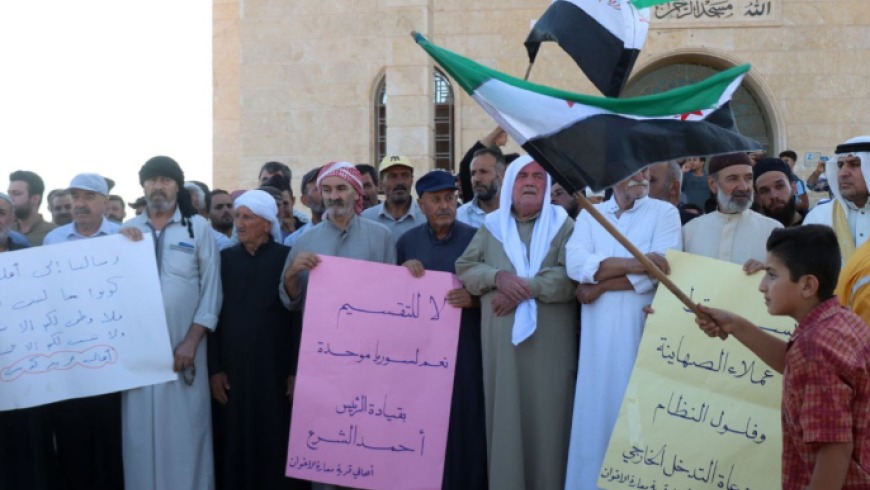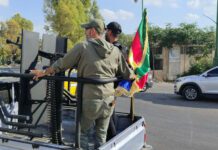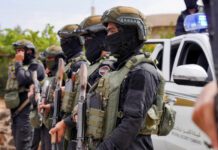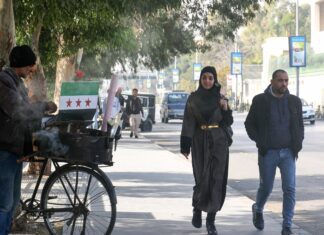
Nearly three weeks after its launch, the Civil Initiative Committee for Resolving the Crisis in Suwayda is positioning itself as a bridge between fractured communities and the Syrian state. At a press conference, committee chairman Muti al-Batin said the effort emphasizes “national discourse, dialogue, and return to our national culture and history.”
Batin explained that the initiative is civil in nature and not launched in the state’s name, but it has received quiet support from authorities. “Most of our brothers from the people of Suwayda … support Syria and our shared history,” he said, stressing that the goal is to restore hope and reject sectarian divisions.
Committee member Sheikh al-Jassem, a representative of the General Reconciliation Council—an umbrella group with about 5,000 activists across the country—underscored that Syrians “cannot live without a unified Syria” and that the initiative is meant to “heal the rift between the sons of the same country.”
Community Support and Challenges
The initiative has drawn support from Druze sheikhs in Sahnaya and the Damascus countryside, as well as local figures in Suwayda such as engineer Atef Hanidi, who has previously mediated disputes between Druze and neighboring Daraa communities. The committee says the majority of residents oppose calls for division and favor remaining part of Syria.
Batin acknowledged the process faces serious obstacles, pressures on community leaders and the influence of “discordant voices,” including fake media accounts spreading sectarian incitement. Ongoing violence in Suwayda—kidnappings, killings, and the displacement of thousands of Bedouin families—has added to tensions.
Druze Sheikh Laith al-Balous, a leader of the Dignity Guesthouse, said in a televised interview, that most of Suwayda’s residents reject partition and “support the unity of Syria, both its land and its people.” But he also described threats against those supporting unity and rejecting secessionist rhetoric, saying, “Anyone who expresses their opinion today is accused of being a traitor … they are even subject to murder.”
Authorities and Accountability
Although the committee does not investigate crimes itself, both Batin and Jassem said reconciliation lays the groundwork for accountability by competent legal bodies. They stressed that the state remains the guarantor of peace efforts. “No initiative can succeed without the support of the authorities,” Jassem said.
Suwayda Governor Mustafa al-Bakour reinforced this message last week, describing civil peace as “a national and moral necessity” and urging all parties to engage with reform efforts.
Rejection of Partition and Foreign Interference
While some demonstrators in Suwayda raised Druze flags alongside Israeli ones, other Druze communities elsewhere have voiced opposition. In Jabal al-Summaq in Idlib province, villagers protested against secessionist calls, chanting slogans against “foreign interference” and affirming their loyalty to Syria.
Khaled Ali, one protester, told Anadolu Agency that Israel and others seek to exploit Suwayda’s unrest, but “these attempts do not represent the people of Jabal al-Summaq.”
The committee’s next steps include continued outreach to religious leaders nationwide, with the aim of convening representatives from all sects to demonstrate a unified Syria. “This initiative is not for accountability, but to give hope to keep Syria away from sectarianism,” Batin said.








